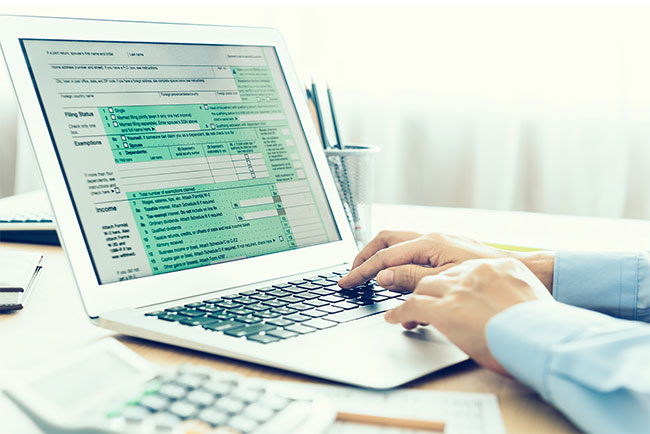
Why Sharing Your Bank Account and Routing Numbers with Tax Prep Software Can Be a Boon (But Safety First!)
Tax season can be a stressful time, filled with gathering documents, crunching numbers, and navigating complex forms. Tax preparation software aims to streamline this process, but it often requests your bank account and routing numbers. While this might raise concerns about security, there are several significant advantages to providing this information. However, prioritizing safety is paramount. Let’s delve into the benefits and potential risks associated with sharing your bank account information with tax prep software.
Benefits of Sharing Bank Account and Routing Numbers:
1. Faster Refunds:
-
Traditional paper checks can take weeks to arrive in the mail. When you provide your bank account information, the IRS can electronically deposit your tax refund directly into your account. This method is much faster and more secure, eliminating the risk of lost or stolen checks.
-
Some tax preparation software providers even offer “advance refund” options, allowing you to access a portion of your expected refund even before the IRS officially processes your return. This can be helpful for covering tax payments owed or managing immediate expenses. However, it’s crucial to understand any fees or interest associated with these options.
2. Streamlined Payment Process:
- If you owe taxes, providing your bank account information allows you to electronically pay the IRS directly through the tax preparation software. This eliminates the need to mail a check or utilize an online payment system, saving time and simplifying the process.
3. Automatic Direct Deposit for State Refunds:
- Many states also offer direct deposits for tax refunds. By providing your bank account information, you can receive both your federal and state refunds electronically, ensuring a faster and more convenient experience.
4. Auto-fill for Future Tax Returns:
- With your bank account information securely stored, some software pre-fills this information for future tax filings. This saves time and reduces the risk of errors during data entry.
5. Automatic Payment Options for Tax Preparation Fees:
- Many tax preparation software programs offer tiered fee structures. If you choose a service with automatic payment, your bank account information allows for a seamless payment process without the need for manual payment entries.
Security Considerations:
Sharing sensitive information like bank account details requires caution. Here are some safety tips to prioritize when using tax preparation software:
-
Choose Reputable Software: Research and choose a reputable tax preparation software provider with a proven track record of data security. Look for companies that utilize strong encryption measures and secure data storage practices.
-
Two-Factor Authentication (2FA): Whenever possible, enable two-factor authentication on your tax software account. This adds an extra layer of security by requiring a unique code, often sent to your phone, in addition to your password when logging in.
-
Review Permissions: Carefully review the permissions requested by the tax preparation software before providing your bank account information. Ensure they only access the information required for processing your tax return.
-
Don’t Share Login Credentials: Avoid sharing your login credentials for your tax software with anyone, including third-party tax preparers. You can grant them access to your return within the software itself without revealing your login details.
-
Monitor Your Accounts: Regularly monitor your bank account statements for any suspicious activity. Report any unauthorized transactions to your bank immediately.
Alternatives to Sharing Bank Account Information:
While sharing your bank account information can be convenient, there are alternatives if you have security concerns:
-
Mail Your Tax Refund Check: While slower, you can opt to receive your tax refund via a paper check mailed to your address.
-
Pay Taxes with a Credit Card (Fees Apply): You can pay any taxes owed using a credit card within the software (be aware of associated fees). This can be beneficial for earning rewards points, but be mindful of incurring additional debt.
-
Pay Taxes Electronically Using a Routing Number (Without Account Details): Some software allows electronic payment of taxes using your bank’s routing number and your Social Security number, without requiring full bank account details.
FAQs:
1. Is it safe to share my bank account information with tax preparation software?
Sharing this information can be safe with reputable software providers. However, prioritize your safety by choosing a reliable company with robust security measures and following the security tips mentioned above.
2. What happens if my bank account information gets stolen?
Contact your bank immediately if you suspect a security breach or unauthorized activity in your account. They can help deactivate your cards, investigate the fraudulent activity, and issue new account details.
3. Can I file my taxes without providing my bank account information?
Yes, but you’ll miss out on the benefits of faster refunds and easier payment options. Consider the alternatives mentioned above for receiving your refund or paying any taxes owed.
Can I file my taxes without providing my bank account information? (continued)
…uncomfortable using online tax preparation software altogether? Traditional paper filing remains an option. You can obtain tax forms from the IRS website (https://www.irs.gov/) or by mail. However, this method can be more time-consuming and prone to errors compared to using tax software.
Conclusion:
Deciding whether to share your bank account information with tax preparation software is a personal choice. Weigh the convenience of faster refunds and easier payment options against your comfort level with data security. By prioritizing reputable software providers and following essential security tips, you can maximize the benefits of using tax prep software while minimizing security risks. Remember, it’s always possible to file your taxes traditionally on paper if you prefer not to share your bank account details electronically.




